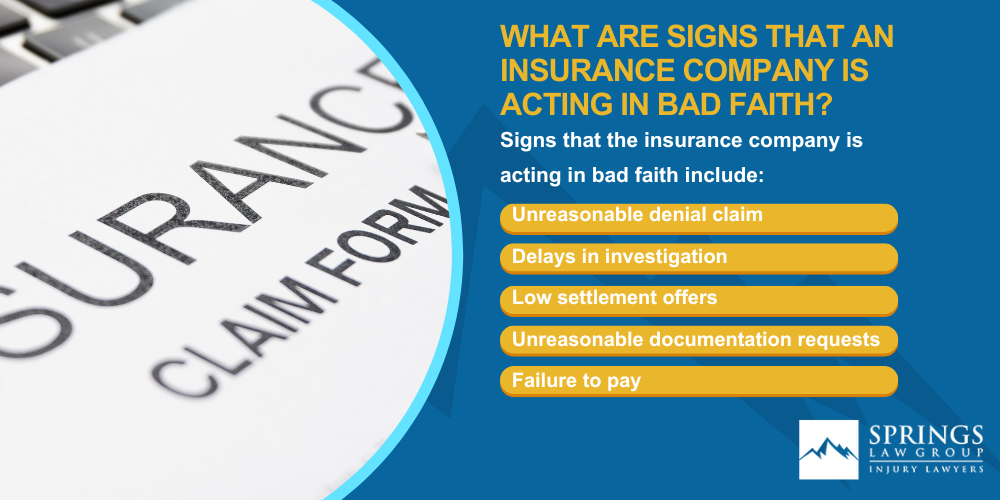Five Signs of Bad Faith Insurance Practices

After any type of injury accident or property damage, you usually file a claim for compensation with your insurance company or the negligent party’s insurance company. These agencies have a duty to investigate your claim before making a decision for settlement. While the insurance adjuster has a right to request documentation about the accident or damage, the demands can become excessive and delay the settlement of your claim. When this happens, the insurance company could be acting in bad faith.
What Are Signs That an Insurance Company Is Acting in Bad Faith?

You have a right to receive fair payment from your insurance company, in a reasonable amount of time, for a legitimate claim. This is part of your contract with the insurance company. While the insurance company for a negligent party has no contractual agreement with you, it still has a basic duty to investigate and pay a legitimate claim. When an insurance company fails to fulfill its basic duties to you, you could have a bad faith insurance claim against the company. Signs that the insurance company is acting in bad faith include:
- Unreasonable denial claim. One of the most common signs of bad faith is the insurance company denying your claim for no good reason. It may try to hide the lack of a legitimate reason by citing a confusing insurance policy clause as a basis for the denial.
- Delays in investigation. When you lose your home in a fire or your car is totaled in a car accident, you need the insurance adjuster to investigate your claim relatively quickly, so you can make housing decisions or purchase another vehicle. However, some adjusters will delay the investigation on a claim and inspections done of the damage, which will delay a decision on whether to pay your claim.
- Low settlement offers. Another common bad faith tactic is to offer you less than what your claim is worth in hopes that you will accept the offer because you need the money. You never want to accept a settlement offer from the insurance company without first consulting with an experienced attorney who can advise you of the true value of your claim.
- Unreasonable documentation requests. If the insurance company requests an unreasonable amount of documentation about the accident or your injuries, it may be looking for excuses to delay or deny your claim. Some of the requests could be for irrelevant and private medical information the insurance company does not have a right to review.
- Failure to pay. Some insurance companies will take an unreasonable amount of time to pay a claim, or refuse to pay in an effort to get you to accept less than what you deserve. You should contact an attorney immediately in this situation.
Have you experienced any of these signs of bad faith insurance practices? You could be entitled to compensation above the amount of your claim. To learn about your legal options and for assistance in settling your claim, call our office today to schedule a free consultation.
